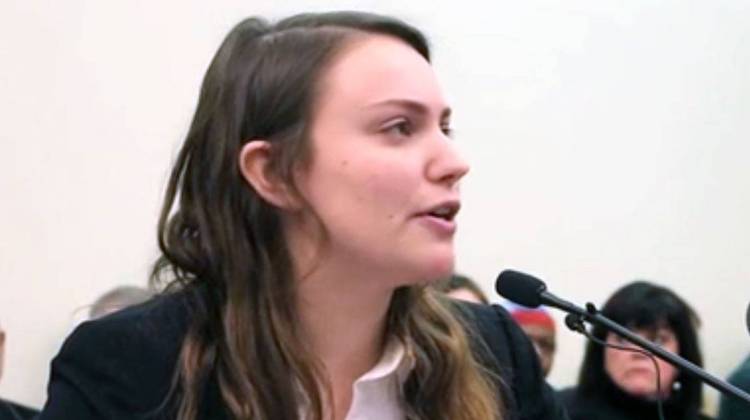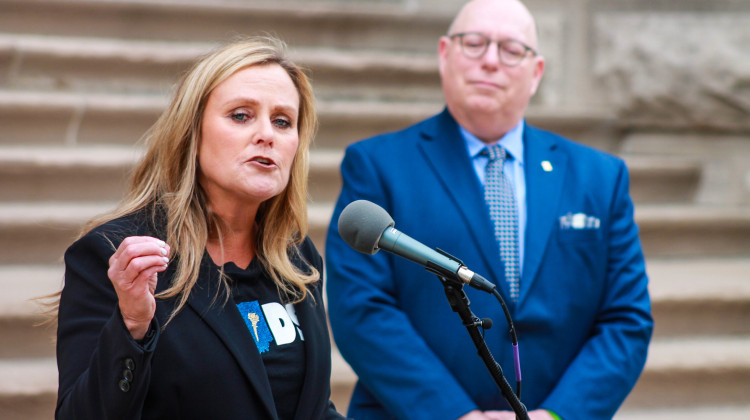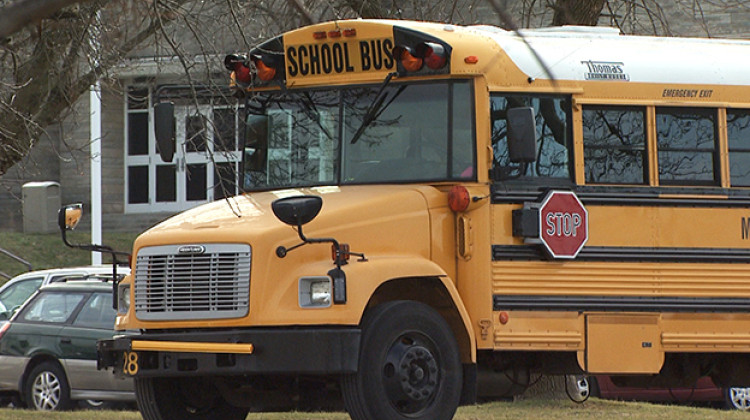
Indiana University sophomore Morgan Mohr, who is majoring in political science and history, said the bill could “disenfranchise students from the communities in which they identify.â€
INDIANAPOLIS – A state senator has agreed to rethink legislation that critics say could make it harder for college students to vote in the communities in which they attend school.
Students from Indiana, Southern Indiana and Ball State universities came to the Statehouse on Monday to object to Senate Bill 466, a bill backed by the secretary of state’s office that makes changes across election law.
Tucked among its many sections is a provision that says a person who is physically present in a precinct for a temporary purpose does not gain residency in the precinct for voting. Critics – including several lawmakers who represent colleges – said they fear that language will restrict student voting.
Indiana University sophomore Morgan Mohr, who is majoring in political science and history, said the bill could “disenfranchise students from the communities in which they identify.”
“This bill would discourage Hoosier students from becoming responsible citizens,” Mohr said. “As a student at the university, we’re supposed to engage in the civil process and if we can’t vote in the community in which we are participants of, that seriously hinders our ability to learn to be good citizens.”
The bill’s author, Sen. Pete Miller, R-Avon, said the legislation is not intended to change state law, which he said allows students to vote in college communities if they declare them to be their residence. He said the language was only meant to clarify the law.
But Sen. Ron Alting, R-Lafayette, said Purdue students are also concerned about the impact of the legislation and he braved snow-covered roads and highways early Monday to make sure he arrived at the committee meeting in time to prevent the provision from passing.
“We feel in Lafayette and West Lafayette that they’re part” of the community, Alting said. “They have a representative on the city council. We’re just tickled to death with how it works now.”
Brad King, the Republican co-director of the Indiana Election Division, said Monday that he supports the legislation and also said the residency provision is meant to remove ambiguous language that makes the law hard to interpret.
“There should be no impact on students with meeting residency requirements,” King said.
But the division’s Democratic co-director – Trent Deckard – told the committee that he has concerns as well. He said college students are counted by the U.S Census as residents of their university communities and should be able to vote there as well.
Senate Elections Committee Chairman Greg Walker, R-Columbus, said critics raised questions that need answers before the group can act on the bill.
“I’m planning to hold the vote until we’re all clear on what the language does,” Walker said. “I don’t feel like we have confidence at this point.”
Miller said he’d work on the provisions to ensure they don’t impact student voters.
Lesley Weidenbener is executive editor of TheStatehouseFile.com, a news website powered by Franklin College journalism students.
 DONATE
DONATE






 View More Programs
View More Programs

 Support WFYI. We can't do it without you.
Support WFYI. We can't do it without you.